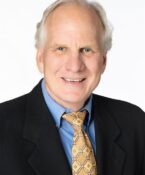Unemployment, Health Care Spending Affect Mortality
At the Health Industries Council meeting on March 11, in Irving, Harvey Brenner, PhD and professor of public health and behavioral sciences at the University of North Texas Health Science Center’s School of Public Health, announced new findings that indicate that mortality is directly related to the economy. Specifically, unemployment and reduced spending on health care have a direct effect on the country’s mortality rate.
"We have seen this correlation in cardiovascular disease," Brenner related. "But these are the first findings that show a direct correlation between reduced health care expenditures and reduced labor force participation on increases in mortality."
Since World War II, research literature has shown that economic development is good for health in developing countries. However, it isn’t clear if this same economic development in already developed countries has the same benefits. In fact, Brenner’s research shows that unemployment is a much more important factor in health and well-being than economic development.
"Interestingly, this economic downturn is showing how quickly the effects of unemployment and, thus, reduction of health care expenditures is resulting in mortality," Brenner said. "In the past, we saw people die within 10 years after their job loss. Now, we are seeing them die as early as the same year."
When a worker becomes unemployed, he or she often loses health insurance, suffers stress and adopts unhealthy behavior as a result. They may delay preventive health care because of the cost or loss of health insurance coverage. The stress of being unemployed causes both physical and psychological issues that may eventually erupt into major medical conditions that easily could have been treated earlier.
The bottom line is, preventing and controlling health issues is more important in a down economy as more and more people struggle to balance the need for food, shelter and health care.
Read the Dallas Morning News article about Brenner’s findings.





Social media